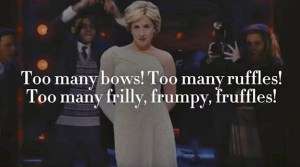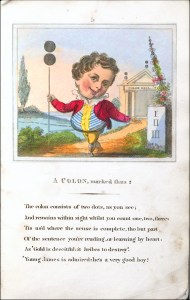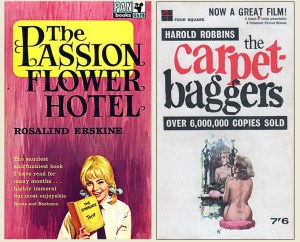
Arachibutyrophobia is the fear of getting peanut butter stuck to the roof of your mouth.
Babies: It’s said that every new-born baby looks like Winston Churchill, and recent arrivals tend to prove that this is indeed so. Luckily most of them soon grow out of it.
Banzai! I wrote a light-hearted bit about Japan in an earlier Jottings which set me thinking in a more serious vein. I don’t consider myself to be in any way racist, but in comics and movies when I was a kid the Japs were the enemy. We’d all seen The Bridge on the River Kwai (1957), set in a Japanese prison camp in Burma where the prisoners were treated very cruelly, while at school some of my classmates were keen on war comics which bore names like Action! and Commando! and often featured Japanese pilots who yelled “Banzai!” as their Kamikaze planes flew to their doom.  Pretty soon these same boys were yelling “Banzai!” as they attacked each other (and me) with pillows after lights out. There were some nasty books circulating too dealing in rather too much detail with Japanese war atrocities, such as The Camp on Blood Island and The Knights of Bushido. These things revolted me but they were inescapable, yet as the years went by and as the dust of Nagasaki and Hiroshima settled our perception of the Japanese slowly changed, and by the 1980s my company was trading with Japanese publishers very happily and for some years now I’ve been driving Japanese cars, but though It’s probably unworthy of me I can’t help wondering where all the cruelty went. In peacetime did it just melt away, never to be seen or mentioned again? Perhaps I’m wrong even to mention it here.
Pretty soon these same boys were yelling “Banzai!” as they attacked each other (and me) with pillows after lights out. There were some nasty books circulating too dealing in rather too much detail with Japanese war atrocities, such as The Camp on Blood Island and The Knights of Bushido. These things revolted me but they were inescapable, yet as the years went by and as the dust of Nagasaki and Hiroshima settled our perception of the Japanese slowly changed, and by the 1980s my company was trading with Japanese publishers very happily and for some years now I’ve been driving Japanese cars, but though It’s probably unworthy of me I can’t help wondering where all the cruelty went. In peacetime did it just melt away, never to be seen or mentioned again? Perhaps I’m wrong even to mention it here.

Deafness, partial: “I have one curious trait which I believe to be inherited from my father … Whenever ten or more people are gathered together in one room, chattering away like broiler-fowl at feeding-time, I go deaf. It is as if the input channels of my ears become overloaded and automatically cut out as a precaution against short-circuiting and bursting into flames. For me, social convocations for drinks or meals turn, when warmed up and under way, into surrealistic happenings in which lips move, tongues wag, eyebrows plunge and soar but nothing that could be remotely described as human speech reaches me.” — Humphrey Lyttelton from Last Chorus: an autobiographical medley (2009) I almost cheered when I read this, for I suffer from exactly the same ailment and had always thought it was a weird thing peculiar to me but to find that Humph, a jazz musician and popular radio host, had it too and lived a very happy and successful life despite it was heartening. When I was younger and went out socializing a lot it was a real handicap in the chatting-up stakes — I was the original guy you’d always find in the kitchen at parties — but these days I don’t go to parties and it’s no problem at all.
Diana: the Musical: The recent kerfuffle over Prince Harry’s book Spare reminds me of a couplet from this bizarre musical work when Diana looks at her newborn baby and sings “Harry, my ginger-haired son / You’ll always be second to none.” As a prediction this was way off the mark, of course, and the show contained many other cherishable lines, e.g.

● Some paparazzi chasing Diana: ”Better than a Guinness, better than a wank / Snap a few pics, it’s money in the bank.”
● AIDS patient to Diana: “I may be unwell, but I’m handsome as hell.”
● Charles angry at Diana’s dance routine with Wayne Sleep: “How about for a start / Don’t act like a TART.”
● Diana, bored at a cello recital by Rostropovich: “The Russian plays on and on / Like an endless telethon / How I wish he were Elton John!”
● Diana at a fashionable party: “Nights like this, I envy the poor / Their parties can’t possibly be such a bore.”
The original stage production was much delayed by Covid and was trounced by the critics when it finally did appear (in The New York Times Jesse Green wrote, “If you care about Diana as a human being, or dignity as a concept, you will find this treatment of her life both aesthetically and morally mortifying.”) but it has been filmed for Netflix and many clips from it can be found on YouTube.

There’s a particularly good (i.e. bad) one here, and a chunk of the soundtrack here which amongst other things gives us the word fruffles.
Earworm: I got this one — an earworm, as I’m sure you know, is one of those annoying tunes that gets into your brain and won’t go away — on a visit to New York in 1986 when I was in a taxi taking me from one appointment to the next, and a record came on the radio. I heard only snatch of it, a high-pitched voice singing “ooh-ooh baby blue” or something like that, and I didn’t hear who was singing it or the title of the song. But it stuck in my mind and has remained stuck there ever since, damn it. I tried quite hard to identify it, looking at the US charts for the period to see what records might have been hits there at the time, and even singing the bit I remembered to friends who knew more about music than I did. No luck with any of that. Had I got it wrong? Had the high-pitched voice been singing “ooh-ooh Betty Boo” or “Dicky Doo” or something similar? Eventually I gave up the search, but the earworm remained. Imagine my surprise, then, when idly flicking around YouTube the other day I came across a video called Two-Hit Wonders of the 1970s and there it was! Long story short: it had been a a big hit in the USA and elsewhere in 1975 — the NY radio station must have been playing it as a golden oldie — but was virtually unknown in the UK, and it was ‘Jackie Blue’ by the Ozark Mountain Daredevils, a group hitherto unknown to me.  The high-pitched voice turned out to belong to the drummer, a hairy fellow who also wrote it. It took me 35 years to identify the thing, and then I did so only by accident. Anyway, I downloaded the track and now play it two or three times day in the hope of getting sick of it and banishing the earworm forever, but at the moment I still like it.
The high-pitched voice turned out to belong to the drummer, a hairy fellow who also wrote it. It took me 35 years to identify the thing, and then I did so only by accident. Anyway, I downloaded the track and now play it two or three times day in the hope of getting sick of it and banishing the earworm forever, but at the moment I still like it.
If you want to risk hearing it and getting the earworm yourself it can be found here.
More family stuff: One of my ongoing projects is to find and archive family photographs to get them all into decent-quality digital form, and amongst my late mother’s things I found a folder of very old pictures which I’m scanning and retouching one by one: a voyage of discovery as I’d never seen many of them before. Here’s one of my mother’s family, the Smiths, from the 1920s:
 On the left is my Nana who I claim as the original Betty of Bettys Café fame — she was never very keen on smiling for the camera — then my mother, then my grandfather J.J. who ran Bettys for many years but died young, and finally Uncle Ray. It doesn’t do to dwell too much in the past, however, and I’m glad to say that my family in New Zealand are keeping me plentifully supplied with photos of the new generation:
On the left is my Nana who I claim as the original Betty of Bettys Café fame — she was never very keen on smiling for the camera — then my mother, then my grandfather J.J. who ran Bettys for many years but died young, and finally Uncle Ray. It doesn’t do to dwell too much in the past, however, and I’m glad to say that my family in New Zealand are keeping me plentifully supplied with photos of the new generation:
 That’s Mia at the back, then (from the left) Isabelle, Finn and Madeleyne: one great-nephew and three great-nieces. Can these beautiful kids really be related to ugly old me?
That’s Mia at the back, then (from the left) Isabelle, Finn and Madeleyne: one great-nephew and three great-nieces. Can these beautiful kids really be related to ugly old me?
Language note: In recent months a lot of americanisms have crept into the speech of our politicians and public speakers: drilling down, doubling down, ramping up, etc., but the one that really irks me is the use of likely instead of probably, as in “It will likely rain tomorrow.” This is now becoming widespread: in today’s newspaper former British Army Colonel Philip Ingram is quoted as saying “Western response would likely be the conventional destruction of every Russian piece of kit inside geographic Ukraine.” Col. Ingram really ought to know better.
Lewis, C.S.: My father knew him personally and would send me copies of his books when I was a teenager away at boarding school, including these Pan editions which are still the best cover designs I’ve seen for these titles. (Pan retitled Perelandra as Voyage to Venus.) I have them still. Still good.
Meat, red: “I caused looks of utter horror on Masterchef when I said I didn’t go along with the fashion for serving pink lamb. ‘I like mine well-done and crispy-skinned. Good old falling-apart lamb, like Granny used to cook,’ I said. ‘Why do we have to copy the French?’ Needless to say, I wasn’t invited back.” —June Whitfield, from her autobiography.

I like mine well-done and crispy-skinned too. When I bought my first house in the mid-1970s and started to learn how to cook properly — or as properly as it ever got — this coincided with a sudden vogue amongst my generation for serving meat semi-raw. “It’s much more tasty this way,” said friends serving me slices of nearly raw meat slopping about in tepid blood, and some of them sneered at me for not following this new fashion. Well, over the years I have eaten meat prepared in many different ways and stubbornly I still prefer it well-done, and it was good to find sensible person like Dame June agreeing with me.
Monopoly: Interested to see that there’s now a Harrogate edition which has Bettys Cafe as one of its stops. Regular readers if this blog will know of my family’s early links to Bettys.
New Zealanders eat more ice cream per capita than any other nation. Fact.
Pronunciation: When I was research student long ago my father used to annoy the hell out of me by pronouncing it ree-search (“How’s your ree-search going?”) at a time when everyone else pronounced it with two equal syllables as in reverse or rehearse. Well, times change, and now ree-search seems to have become standard. I don’t like it, but even worse is the now almost universal pronunciation of kilometre with the emphasis on the middle syllable: kill-OM-eter. It makes no sense, as we don’t say kill-OLL-eter for kilolitre or cen-TIM-eter, but I’m afraid it’s here to stay. I blame Top Gear for this. Grrrrr.

Punctuation: “Kipling, of course, found a new use for the colon.” –from Tavern Talk by Collin Brooks (1950). Did he, indeed? Being very interested in such matters — and isn’t that ‘of course’ annoying? — I had a look through Kipling’s works to see if I could spot this so-called new use, but the only unusual use of the colon that I could see occurred at end of the first two stanzas in Kipling’s famous poem ‘If’, though in some editions it’s been replaced by a semicolon, no doubt by editors who thought they knew better than the author. If this is what Brooks means by ‘a new use’ it seems hardly worth mentioning — but perhaps I’ve missed something.
Tavern Talk has a bit more to say about punctuation, however: “Bart Kennedy, that almost forgotten man, thought he could make a new use of the full point. For a while his technique was effective, but it grew tedious. Parody eventually killed it.” When I first read this in the 1970s I could find out nothing about Bart Kennedy, but now we can google him and get the basic facts, which are that he was … well, here‘s a link to his Wikepedia entry. Some of his books have been published online too, and we can see his innovative use of the full point in a succession of short often verbless sentences:

Other writers have since employed this sort of staccato style, e,g, Peter Tinniswood in his later works like The Stirk of Stirk, and no doubt many other too.
Finally, there’s a punctuation mark used to signify irony or sarcasm that looks like a backwards question mark [⸮] but since it doesn’t feature in most computer fonts it isn’t widely used,
Rhyming slang: In an earlier Jottings I made the suggestion that scarper, meaning run away, leave, scram, might be rhyming slang from Scapa Flow (=go), but my friend Bob was quick to point out that this was not so, and that it derives from the Italian ‘scappare’ – to escape. This has been in use since the 17th century. Swell’s Night Guide, 1846 includes the quotation: “He must hook it before ‘day-light does appear’, and then scarper by the back door.”
Saddest book title: Leftover Life to Kill by Caitlin Thomas (Dylan’s widow).
Saucy books of the ‘sixties:  I belong to various online groups devoted to the celebration of vintage paperbacks, of which I possess hundreds, where members upload pictures of the books in their collections and of their latest finds. Most of these books are from the genres of thrillers and science fiction with splendidly lurid covers, and occasionally one of these brings back sharp memories, e.g. The Passion Flower Hotel which was considered a very naughty book in the early 1960s. It was read avidly by my sister Carol and the other girls at her boarding school where it had to be hidden from the teachers and, at home, from parents too. Tee hee. I wasn’t averse to a bit of sleaze myself and remember a few books that I read at the time in search of cheap thrills. One was The Ginger Man by J.P. Donleavy, which I enjoyed and actually admired as a novel, but sleazier by far was The Carpetbaggers. Does anyone read Harold Robbins these days? I doubt it.
I belong to various online groups devoted to the celebration of vintage paperbacks, of which I possess hundreds, where members upload pictures of the books in their collections and of their latest finds. Most of these books are from the genres of thrillers and science fiction with splendidly lurid covers, and occasionally one of these brings back sharp memories, e.g. The Passion Flower Hotel which was considered a very naughty book in the early 1960s. It was read avidly by my sister Carol and the other girls at her boarding school where it had to be hidden from the teachers and, at home, from parents too. Tee hee. I wasn’t averse to a bit of sleaze myself and remember a few books that I read at the time in search of cheap thrills. One was The Ginger Man by J.P. Donleavy, which I enjoyed and actually admired as a novel, but sleazier by far was The Carpetbaggers. Does anyone read Harold Robbins these days? I doubt it.
Wasabi: Most wasabi paste isn’t real wasabi, which is expensive.
X-Ray Specs:  I knew that they would be a con, and that they wouldn’t really enable me to see through women’s clothes to their naked bodies — something I was very keen to see when I was 13 or so — and when I finally got hold of a pair (of x-ray specs, not yet naked women) by a most circuitous route of course they didn’t.
I knew that they would be a con, and that they wouldn’t really enable me to see through women’s clothes to their naked bodies — something I was very keen to see when I was 13 or so — and when I finally got hold of a pair (of x-ray specs, not yet naked women) by a most circuitous route of course they didn’t.
Zoom: Over the Christmas/New Year holiday we planned a Zoom session between England and New Zealand but I was in such a dismal state with cold and general low spirits that I knew I wouldn’t be able to give a good account of myself — maybe we’ll try again at Easter — so to end on a more upbeat note here‘s a record that I used to have on a compilation tape and always liked.